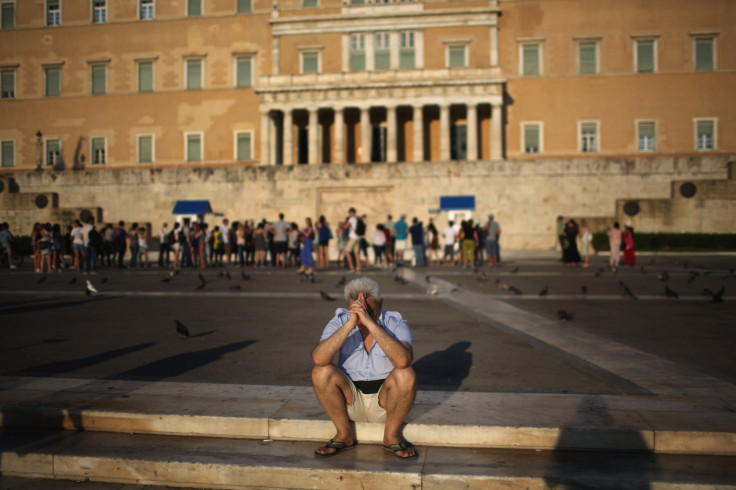Greek Debt Crisis: What Does The Bailout Agreement Mean For Pensioners?

Throughout the grueling, six-month battle over Greece’s bailout terms, the most contentious issue has been that of pensions. As Greek Prime Minister Alexis Tsipras tries this week to sell the deal to his reluctant party, the left-wing Syriza coalition, retirement benefits will likely take center-stage.
To Germany and other eurozone creditors, Greece’s pension system is a bureaucratic jumble that awards excessive retirement benefits to workers in their early fifties. To the Greek government, pensions serve as a crucial anti-poverty program, keeping millions of Greek families from going broke.
Each has a point. Before the eurozone crisis struck Greece in 2010, its retirement benefits kicked in earlier and doled out more than the average country in the euro area. But successive rounds of austerity have cut Greek pensions by an average 27 percent.
Though the latest agreement between Greece and its European creditors skimps on specifics, it’s clear that fulfilling requested pension reforms will mean more cuts on a path to fiscal stability in the pension system.
“The Last Social Safety Net”
The bailout statement released Monday morning called for a “comprehensive pension reform program,” beginning with legislation due Wednesday. Just what does that mean?
In previous proposals, which may not match what the Greek parliament eventually hammers out, eurozone creditors have targeted a number of Greek pension measures. Early retirement penalties would be increased, the age of retirement upped to 67 -- or 40 years of employment -- and health cost contributions raised to 6 percent from 4 percent.

The most contentious demand was the phasing-out of so-called “solidarity grants,” supplementary benefits awarded to the poorest Greek pensioners. The late-June proposal, which was later rejected by a referendum called by Syriza’s leadership, had Greece eliminating these payments by the end of 2019.
Many in Syriza find proposals along these lines unconscionable. “Pensions have become the last social safety net preventing Greek society from completely falling apart,” Deputy Prime Minister Yannis Dragasakis has said.
Balancing The Books
The agreement that arrived Monday morning after 17 grueling hours of negotiations did include specific reference to a “zero-deficit clause” to be implemented by October. This policy would essentially forbid the government for spending more in pension benefits than it takes in every year.
That would mean significant benefit cuts for a pension system creaking under a massive and unsustainable debt load. Greece’s pensions posted a deficit of 350 million euros ($385 million) in the first quarter of last year.
The deficits have arisen from a combination of 25 percent unemployment and a wave of early retirements spurred by the economic uncertainty of the past five years. That has devastated the cash flows into the system. In November 2013, for instance, roughly 2.2 billion euros flowed in. Twelve months later, inflows were just 435 million euros, a nearly 80 percent decline.

Far from offering to cut pensions to slash the deficit, Syriza previously offered to reinstitute popular "13th-month" payments for retirees, which would have swelled the system’s funding imbalances.
15,000 Employees
Creditors have also put a target on Greece’s bloated pension-system administration. Spread out over dozens of separate funds, Greece’s public sector pension system employs some 15,000 workers just to dole out benefits.
Greek officials have previously appeared open to initiating structural reforms in its pension fund administration. But as the Greek government rushes toward a reform plan vote on Wednesday in order to secure precious bailout funding, it’s unclear how many of the other measures Greece will be likely to tolerate.
© Copyright IBTimes 2024. All rights reserved.






















